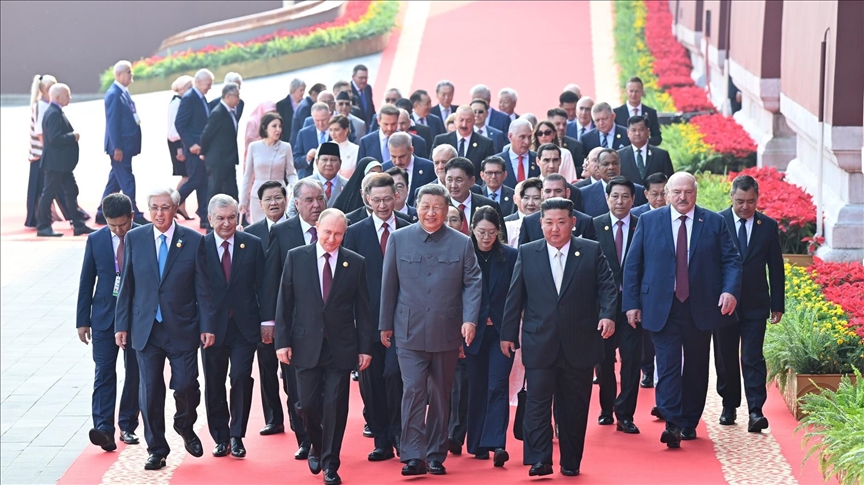Xi Hosts World Leaders in Beijing Amid Global Tensions
Chinese President Xi Jinping hosted world leaders, including Vladimir Putin and Kim Jong Un, in Beijing for a major military parade and diplomatic summit, underscoring China's ambitions amid heightened global tensions.

Chinese President Xi Jinping welcomed an array of world leaders to Beijing this week as the Chinese capital prepared for a massive military parade commemorating the 80th anniversary of the end of World War II. The event, marked by the presence of Russian President Vladimir Putin, North Korean leader Kim Jong Un, and Indian Prime Minister Narendra Modi, serves as both a display of military might and a platform for high-stakes diplomacy at a time of heightened geopolitical strains.
An Unprecedented Gathering
The convergence of these leaders is notable for its timing and symbolism. Vladimir Putin, whose country faces ongoing Western sanctions and diplomatic isolation over the war in Ukraine, appeared eager to highlight what he described as "unprecedented ties" with China. Kim Jong Un’s arrival in Beijing, his first in years, signals a potential deepening of the North Korea-China relationship amid ongoing nuclear tensions and international sanctions. The gathering is not just about pageantry; it reflects a shifting balance of power, with Beijing positioning itself as a central player in global affairs.
China’s Vision for a New World Order
Beyond the parade, the summit included discussions linked to the Shanghai Cooperation Organization (SCO), where Xi Jinping unveiled the "Global Governance Initiative"—an effort to promote an alternative to Western-led international norms. This initiative builds on previous Chinese proposals for global development and security, aiming to rally support among developing nations and challenge the dominance of the United States and its allies. The presence of leaders from across Eurasia and Asia highlights China’s intent to expand its influence through multilateral platforms, emphasizing sovereignty and non-interference as core principles.
While official statements from Beijing emphasized peace and cooperation, the event’s military overtones and the guest list send a clear message to the West. The parade itself, featuring advanced weaponry and troops from multiple countries, is designed to project strength and unity among nations often at odds with the U.S. and its partners. Critics argue that such displays exacerbate divisions and undermine efforts at global cooperation, particularly as tensions simmer over issues ranging from Taiwan to the South China Sea.
For Xi Jinping, the summit and parade are as much about domestic legitimacy as international signaling. By hosting leaders who have themselves faced Western criticism, Xi seeks to demonstrate China’s resilience and diplomatic clout. However, the gathering also exposes the limits of this approach, as many major Western powers declined to attend, highlighting the deepening divide in the international system.